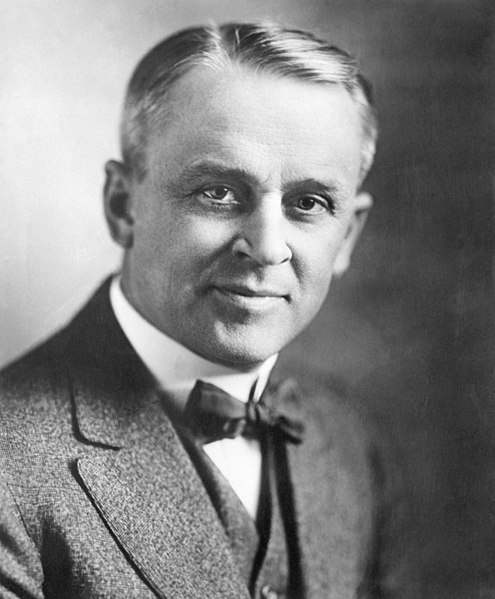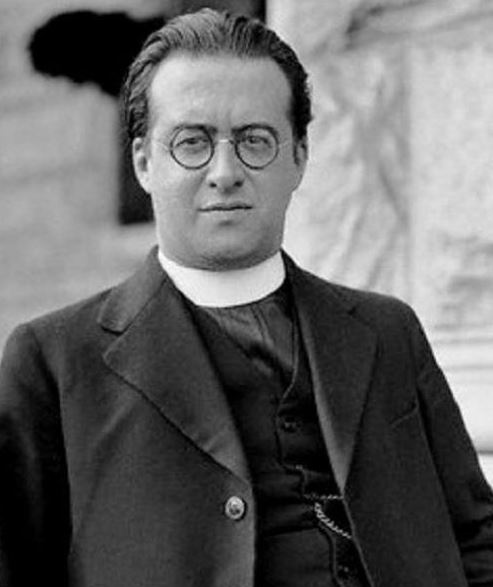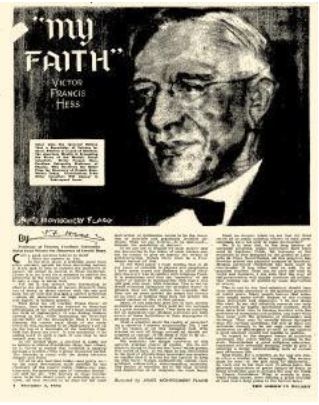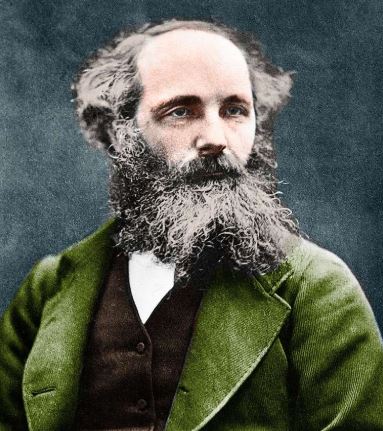
The Big Bang Theory had a successful run on TV having broadcast a total 279 episodes over the course of twelve years. The show was centered around the lives of Caltech physicists Sheldon Cooper and Leonard Hofstadter, Indian-origin astrophysicist Rajesh Koothrappali and MIT-trained engineer and astronaut Howard Wolowitz.
While them four were reel-life scientific people, did you know that they had the pleasure of sharing the screen time with actual geniuses in the field? This post is a list of extraordinarily intelligent personalities in sciences and technology who made casual appearances on the longest running sit-com.
George Smoot
He is an American Nobel Prize winning astrophysicist who is known for his work on the cosmic microwave background radiation. He did a cameo in season two episode The Terminator Decoupling. Smoot had admitted in an interview that he was a fan of the show's often physics-based plots.
Sheldon: "You won the Nobel Prize what, three years ago? You must be dealing with a whole lot of, what has Smoot done lately?" So I thought.. we continue my research, as a team and when we win the Nobel Prize, you will be back on top!"

George has also written a joke for the episode The Dead Hooker Juxtaposition which is told by Penny. He appeared again in the last season on the episode The Laureate Accumulation.
Mayim Bialik
She played the role of Amy Farrah Fowler on the show from season four onwards. Mayim has a PhD in neuroscience from UCLA so she's the real-life doctor among the cast members. Neuroscientists study the development and function of the brain.

For her role as Fowler, Mayim has been nominated four times for the Primetime Emmy Award. She has also acted as scientific consultant for the show along with professor David Saltzberg of UCLA.
Brian Greene
Brian Greene is an American theoretical physicist, mathematician, and string theorist who is the chairman of the World Science Festival since co-founding it in 2008. He appeared in the episode The Herb Garden Germination speaking to a small crowd about the contents of his most recent book.

Greene's area of research is string theory which is a candidate for the theory of everything. He is most well known for his popular books such as The Elegant Universe, The Fabric of the Cosmos and The Hidden Reality.
Elon Musk
He is the renowned South African-American engineer and technology entrepreneur who has founded companies like PayPal, Tesla and SpaceX. Musk appeared in an episode as himself volunteering at a soup kitchen with Howard Wolowitz.

Musk asks if Howard ever thinks about going back into space. Howard lights up: “Is that a job offer? Cuz I really want to go to Mars!” Musk tells him, “We’re not quite there yet, but we’re always looking for engineers, so let me give you my email, and we can stay in touch.
Neil deGrasse Tyson
Popular American astrophysicist and science communicator first appeared on the show alongside Rajesh Koothrapalli. Sheldon just happened to stop by and they exchange a friendly banter. He is quite unhappy with Tyson's role in the demotion of Pluto from planetary status.

In season 12, Neil and Raj get caught up in a Twitter war in which he called Neil "Mike Tyson's little sister." Neil, enraged, goes on to phone Rajesh and challenges him to a face to face duel, "I am the guy who kicked Pluto out of the solar system," he says.
Bill Nye
He is an American science educator who studied mechanical engineering at Cornell University in 1977. His enthusiasm for science deepened after meeting astronomer Carl Sagan. Bill Nye became well known as "The Science Guy" and for his other appearances on television.

He guest starred in episode The Proton Displacement. Sheldon Cooper befriends Nye and brings him in to teach Leonard Hofstader a lesson after Professor Proton, played by Bob Newhart, helps Leonard with an experiment instead of Sheldon.
Steve Wozniak
American electronics engineer and programmer who co-founded the Apple Computers company in 1976 which went on to become the largest company in the world..

While dining in The Cheesecake Factory where Penny works, Woz is approached by Sheldon via telepresence on a self-made robot. Leonard tries to explain to Penny who Wozniak is, but she says she already knows him from Dancing with the Stars.
Stephen Hawking
He was an English theoretical physicist, probably the most famous genius of the modern age, best known for Hawking radiation. Hawking had a recurring role in the show having appeared a total six times. The first cameo is the funniest when Sheldon goes to great lengths to meet his hero. When the moment comes, Sheldon messes up big time and faints!

He was a fan of The Big Bang Theory since season one and requested to watch a rehearsal. Howard Wolowitz does an impression of Hawking's voice in the episode; Simon Helberg who plays the character felt slightly uncomfortable mimicking Hawking but Hawking seemed to enjoy the impression.
Kip Thorne
He is an American Nobel Prize winning physicist who appeared in the final season of the show. After their Nobel prize competitors, Pemberton and Campbell, go on a publicity tour, Sheldon and Amy seek support from a trio of Nobel laureates which included Kip Thorne.

Frances Arnold
She is an American Nobel Prize winning chemist and engineer who appeared in the same season as Kip Thorne as one of the laureates whose support Amy and Sheldon seek.

Popular American astrophysicist and science communicator first appeared on the show alongside Rajesh Koothrapalli. Sheldon just happened to stop by and they exchange a friendly banter. He is quite unhappy with Tyson's role in the demotion of Pluto from planetary status.

In season 12, Neil and Raj get caught up in a Twitter war in which he called Neil "Mike Tyson's little sister." Neil, enraged, goes on to phone Rajesh and challenges him to a face to face duel, "I am the guy who kicked Pluto out of the solar system," he says.
Bill Nye
He is an American science educator who studied mechanical engineering at Cornell University in 1977. His enthusiasm for science deepened after meeting astronomer Carl Sagan. Bill Nye became well known as "The Science Guy" and for his other appearances on television.

He guest starred in episode The Proton Displacement. Sheldon Cooper befriends Nye and brings him in to teach Leonard Hofstader a lesson after Professor Proton, played by Bob Newhart, helps Leonard with an experiment instead of Sheldon.
Steve Wozniak
American electronics engineer and programmer who co-founded the Apple Computers company in 1976 which went on to become the largest company in the world..

While dining in The Cheesecake Factory where Penny works, Woz is approached by Sheldon via telepresence on a self-made robot. Leonard tries to explain to Penny who Wozniak is, but she says she already knows him from Dancing with the Stars.
Stephen Hawking
He was an English theoretical physicist, probably the most famous genius of the modern age, best known for Hawking radiation. Hawking had a recurring role in the show having appeared a total six times. The first cameo is the funniest when Sheldon goes to great lengths to meet his hero. When the moment comes, Sheldon messes up big time and faints!

He was a fan of The Big Bang Theory since season one and requested to watch a rehearsal. Howard Wolowitz does an impression of Hawking's voice in the episode; Simon Helberg who plays the character felt slightly uncomfortable mimicking Hawking but Hawking seemed to enjoy the impression.
Kip Thorne
He is an American Nobel Prize winning physicist who appeared in the final season of the show. After their Nobel prize competitors, Pemberton and Campbell, go on a publicity tour, Sheldon and Amy seek support from a trio of Nobel laureates which included Kip Thorne.

Frances Arnold
She is an American Nobel Prize winning chemist and engineer who appeared in the same season as Kip Thorne as one of the laureates whose support Amy and Sheldon seek.


























 Physics, astronomy and science history blog for students
Physics, astronomy and science history blog for students